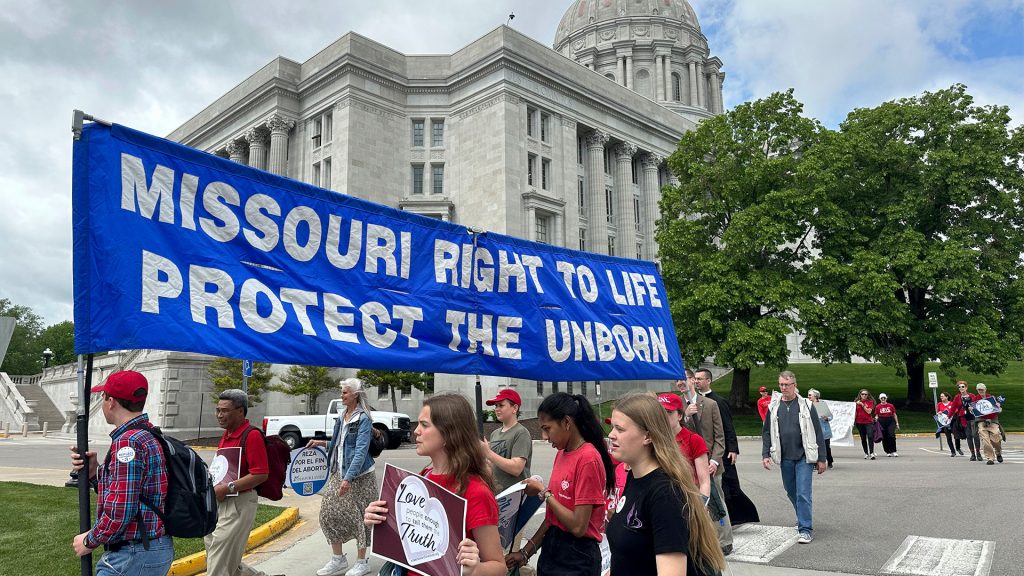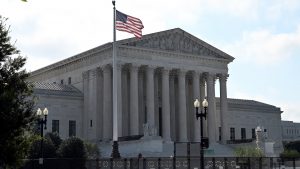MO lawmakers aim to reverse abortion rights months after voter approval

Six months after voters added abortion rights to the Missouri Constitution, Republican lawmakers are pushing a new ballot measure that would let voters overturn that decision and ban most abortions in the state. The proposal, approved by the Missouri Senate on Wednesday, May 14, could go before voters in November 2026.
The decision might come earlier if Missouri Gov. Mike Kehoe calls a special election. The move triggered protests on Thursday, May 15 at the state Capitol.
In November 2024, nearly 52% of Missouri voters passed Amendment 3, which legalized abortion until fetal viability, which is generally considered to be around 21 weeks of pregnancy. The amendment also allows abortions later in pregnancy to protect the life or health of the pregnant woman.
“Missourians support access to abortion,” Mallory Schwarz, executive director of Abortion Action Missouri, said in a statement. “This past November more than 1.5 million Missourians made their voices heard at the ballot box — voting to enshrine abortion rights into the Missouri constitution.”
Despite the change, most medication abortions in Missouri have remained on hold as clinics such as Planned Parenthood work with the state to navigate through new regulations.
What the new proposal would change
The new proposal, known as HJR 73, would ban all abortions except in cases of medical emergency, rape or incest.
In cases of rape or incest, patients would need to provide documentation from law enforcement and the procedure would be allowed only within the first 12 weeks of pregnancy. The measure also includes a ban on the use of public funds to support abortion services, meaning patients eligible for Medicaid would not be able to use those funds for the procedure.
The resolution states that, “Any person who intentionally or negligently causes damage to another person relating to the provision of prenatal care, childbirth, postpartum care, miscarriage care or for the performance or inducement of an abortion, shall be liable for damages and shall be subject to the suspension or revocation of his or her medical license.”
Support and opposition from lawmakers and advocates
Republican state Sen. Mary Elizabeth Coleman helped pass the proposal aimed at repealing Missouri’s abortion-rights constitutional amendment.
“Abortion is the greatest tragedy in the world right now,” Coleman said, according to The Associated Press.
Susan B. Anthony Pro-Life America President Marjorie Dannenfelser said in a statement that the organization applauds “the Missouri legislature for passing this pro-life amendment to save lives, protect parents’ rights, and safeguard women and girls.”
“We call on Missouri GOP leaders in Washington and across the state to offer their strong, vocal support of this measure,” Dannenfelser said.
Democrats and reproductive rights advocates argued that the measure’s language is misleading and failed to make clear that it would repeal current abortion protections.
“This deceptive amendment is a Trojan horse to reinstate Missouri’s total abortion ban and all the medically unnecessary restrictions that made access to abortion unattainable prior to the passage of the Right to Reproductive Freedom Initiative last November,” Tori Schafer, director of policy and campaigns at the American Civil Liberties Union of Missouri, said in a statement. “Missourians want honesty, respect and access to abortion, but HJR 73 is the antithesis to all of these values. Missourians will vote no on this amendment to stop the abortion ban and protect reproductive freedom.”
The new ballot measure also includes a provision that would ban gender-affirming care for anyone under 18, including hormone therapy, medication and surgery.
Next steps before legislation reaches voters
HJR 73 must be assigned an amendment number by the governor and an election date has to be announced.
Missouri has seen repeated legal and political shifts on abortion since the U.S. Supreme Court overturned Roe v. Wade in 2022. The state quickly enacted a near-total ban on abortion following that decision. Activist groups successfully fought to reverse the law during the 2024 election.
Missouri’s abortion restrictions led to the quiet construction of a “mega-clinic” on the Illinois side of the Mississippi River near St. Louis.





